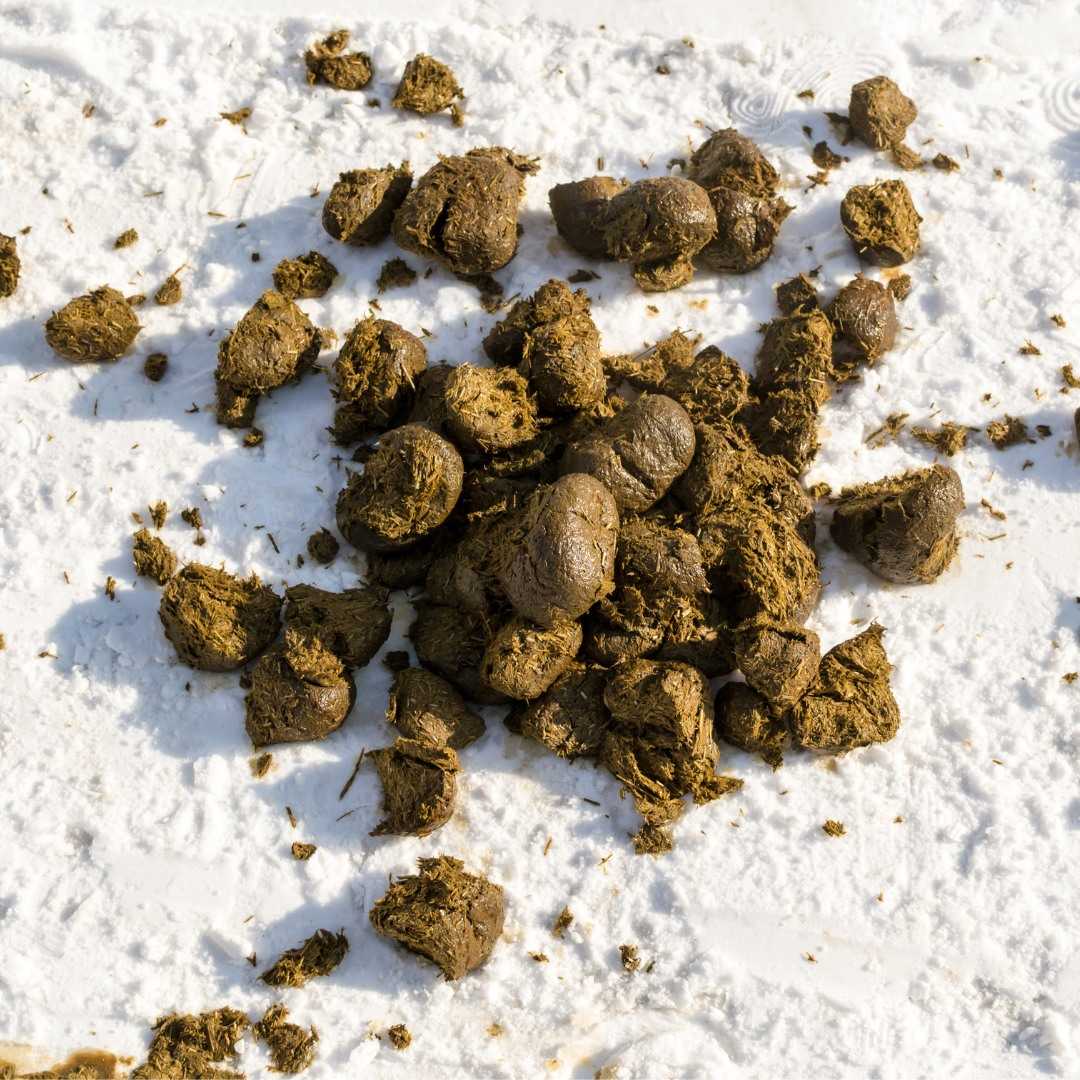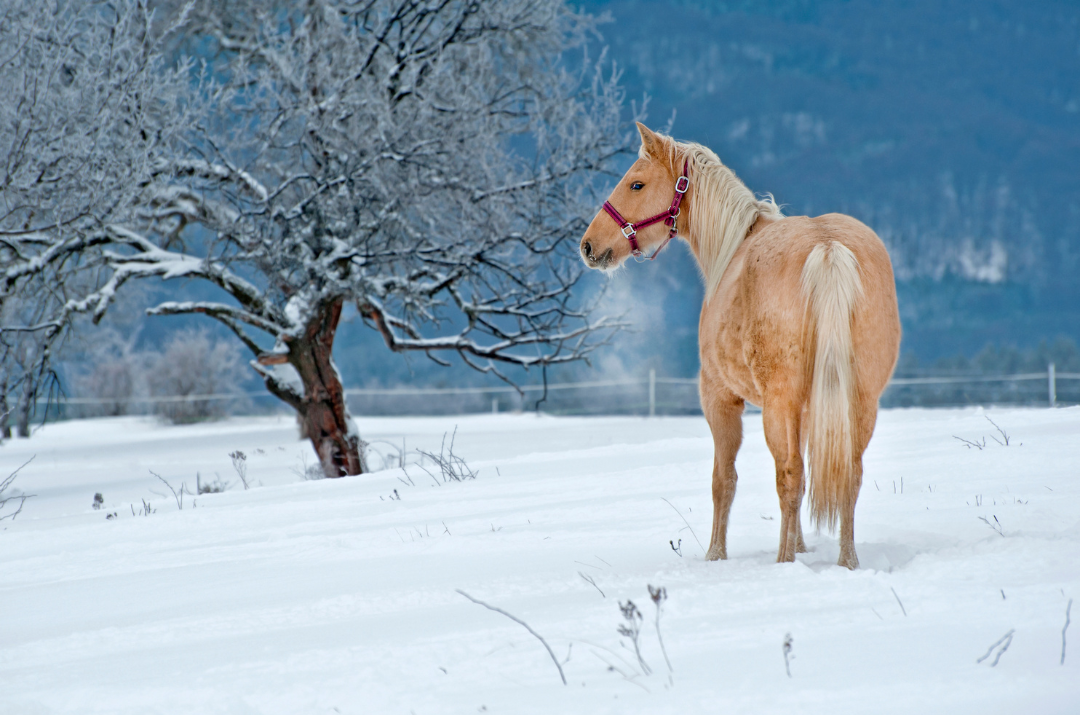So, is manure testing in winter really useful or not? Let's start by saying that manure testing is always useful – even during winter.
It is often said that manure testing in winter is not meaningful, because the “worms” supposedly go into hibernation, resulting in a “false” negative outcome. However, only the larvae of the small strongyle (red bloodworm) have the unique ability to encapsulate. Other gastrointestinal worms, such as roundworms, do not have this ability. The present (female) worms of these gastrointestinal parasites – including the red bloodworm – can continue laying eggs even in winter. We actually see that during the Dutch winter, the infection pressure can still be quite high. This is partly because horses stay on pasture longer in recent years, and due to mild winters, the pastures remain infectious longer.
Frequent manure testing ensures good control over worm management. That’s why we recommend testing every 2.5 to 3 months. This allows you to monitor gastrointestinal worms properly and detect infestations in time. Our standard advice:
If you already treated with a broad-spectrum dewormer in October, do you still need to deworm again at the end of the year?
No, that’s not necessary. In that case, instead of another preventive treatment, send in a manure sample during the first week of January.
Why is a one-time preventive deworming recommended?
It is often advised to deworm once a year preventively due to encysted small strongyles, botfly larvae, and tapeworms. Read in our blog why these gastrointestinal worms are not easily detectable through manure testing. The advice is to administer the year-end treatment only after the first frost. Worm&Co clients always receive a year-end advice email and a reminder with the best time to administer the treatment, if necessary. Research has shown that due to milder winters, pastures remain infectious longer. Infective larvae can survive up to 3 months on pasture, especially at lower temperatures. Moderate to severe frost kills infective larvae.
Are there alternatives to preventive deworming?
Yes, absolutely – and every year more horse owners choose not to deworm preventively. The key is to ensure this choice fits your horse’s situation. If you have consistently performed manure testing 3–4 times per year and used the Equisal saliva test for tapeworm, then a one-time preventive treatment may not be necessary. At Worm&Co, our unique online dossier – in consultation with a (parasitological) vet – helps determine whether preventive deworming is needed for your situation.
Worm&Co takes care of you. Clients always receive an email reminder. If you have any questions, please feel free to contact us!

